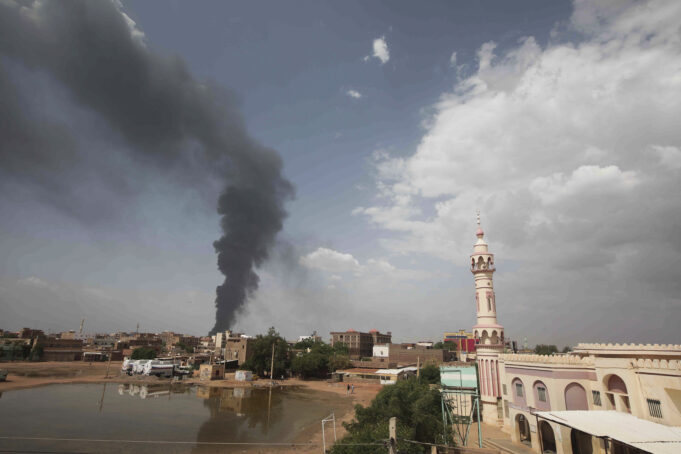Sudan was once the largest country on the African continent. In 2011 the country was divided by a referendum, resulting in the world’s newest nation-state, South Sudan.
Dr. Muhammad Elamin is a consultant physician and clinical toxicologist whose parents are Sudanese. During a wide-ranging interview from his home in the United Kingdom, he spoke with Africa Watch about the current geopolitical and economic climate in the region.

He addressed the ongoing trouble South Sudan is currently facing with its principal source of revenue. Regarding a question about South Sudan’s troubled oil industry and the country’s pipeline, he stated, that the “longest (oil) pipeline in Africa that traverses the Sudanese territory, its security functioning has been an issue.”
The East African newspaper, published in Kenya, recently reported that South Sudan’s deepening economic crisis “appears to be spiraling, with latest disclosures of a desperate plan to completely shut down its oil exports through the war-torn Sudan.” The pipeline crises “puts more pressure on the falling forex reserves, stifling business activities and making operations of local and foreign companies difficult,” reported theeastafrican.co.ke in a July 27 article titled, “Juba mulls shutdown of oil exports via war-torn Sudan.”
These ruptures in Sudan have yet to be repaired and leaves South Sudan with a growing crisis, Dr. Elamin explained. “What other options does South Sudan have?” he asked. “Because they don’t have another pipeline, to Kenya for instance, are they just going to stop the operation totally?”
According to The East African, “This follows a ruptured pipeline that is yet to be repaired, as Khartoum grapples with a prolonged conflict between the army and a paramilitary force Rapid Support Forces (RSF), which broke out in April 2023.”
For 15 months Sudan has been engulfed in a conflict between General Abdel Fattah al-Burhan, Chairman of the Sovereign Council and Commander of the Sudan Armed Force (SAF) and RSF Commander Mohammed Hamdan Dagalo, also known as Hemedti. The conflict has led to the deaths of tens of thousands and the displacement of millions, both within Sudan and across its borders. In addition, the conflict has severely damaged Sudan’s infrastructure including its healthcare system and is pushing the country to the brink of famine.
The spiraling out-of-control conflict, “has (also) stirred up ethnically-motivated killings in the Western region of Darfur, where the RSF and allied militias are accused of leading campaigns of attacks, including sexual assaults against the Masalit ethnic group,” Reuters reported in a July 30 article entitled, “Sexual violence widespread in Sudan’s capital, report says,” written by Nafisa Eltahir. A recent Human Rights Watch (HRW) report blamed both the RSF and the SAF for sexual violence. According to the report gang rape and forced marriages are reported in its war with the SAF.
A media statement was issued by Hala al-Karib, head of the Strategic Initiative for Women in the Horn of Africa (SIHA), during the HRW report’s launch. The statement said that women, including women from the Nuba mountains, had been targeted around Khartoum and Omdurman.
In response to a question about the upcoming negotiations between the two sides in Switzerland scheduled for August after previous rounds of talks in Jeddah, Saudi Arabia proved unsuccessful, Dr. Elamin was not optimistic.
Al Jazeera reported that RSF leader Hemedti said his paramilitary group would participate. The U.S. invited the RSF and SAF to meet for talks in Switzerland on August 14. The U.S. announced that the negotiations will be co-hosted by Saudi Arabia and include the African Union, Egypt, the United Arab Emirates and the United Nations as observers. As of presstime, General Burhan had yet to sign on to participate in the upcoming talks.
Dr. Elamin said there are too many loose ends surrounding the upcoming talks, like “what is the U.S. administration’s agenda?” Also, with President Joe Biden not running for reelection—making his a “lame duck” administration—what weight does a U.S. negotiated settlement mean? he asked. Regional influence over Sudan includes, the UAE which is reportedly funding both Hemedti and his RSF and the former Sudanese prime minister Abdullah Hamdok and his recently formed think tank.
Follow @JehronMuhammad on X, formerly Twitter













